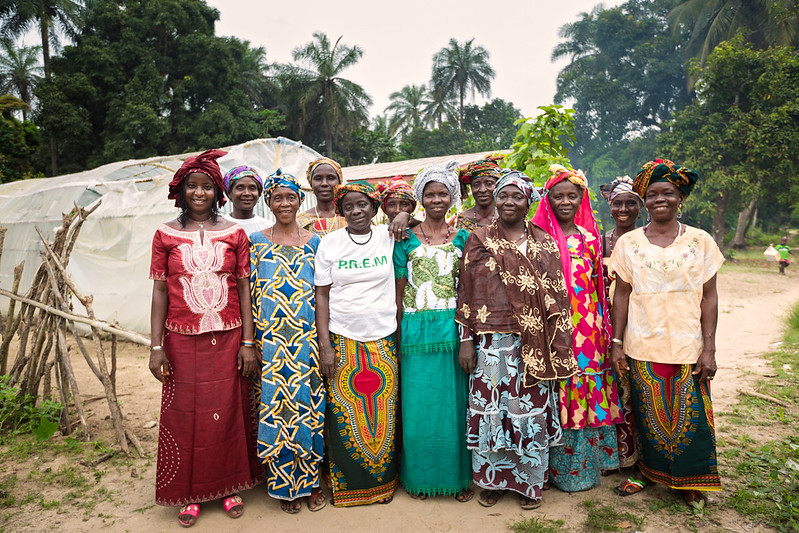Guinean Women’s Political Participation Strengthened
 Guinea has made significant strides in advancing women’s political participation through its 2019 Law on Parity. This groundbreaking legislation mandates that women comprise 50% of candidate lists for national and local elections, as well as for holding elective public offices. The law is explicit, requiring an alternating male and female sequence for candidate lists, and any list that fails to meet this condition is deemed inadmissible. This robust framework marks a substantial departure from previous efforts, where a less stringent 30% quota for women at the national level was never effectively reached in practice. The new law aims to ensure genuine representation by establishing clear, enforceable rules.
Guinea has made significant strides in advancing women’s political participation through its 2019 Law on Parity. This groundbreaking legislation mandates that women comprise 50% of candidate lists for national and local elections, as well as for holding elective public offices. The law is explicit, requiring an alternating male and female sequence for candidate lists, and any list that fails to meet this condition is deemed inadmissible. This robust framework marks a substantial departure from previous efforts, where a less stringent 30% quota for women at the national level was never effectively reached in practice. The new law aims to ensure genuine representation by establishing clear, enforceable rules.
International Support and the Efficacy of Quotas
International organizations have been pivotal in supporting Guinea’s legislative progress. U.N. Women and the UNDP provided direct assistance to Guinean parliamentarians. Their support, part of a joint project that the Government of Canada funded, included technical assistance and advocacy efforts crucial for drafting the 2019 Law on Parity. These organizations continue to work on capacity-building initiatives, political leadership training, and mentorship programs for aspiring female politicians, focusing on essential skills such as campaign strategies and voter engagement.
Organizations like International IDEA document the effectiveness of legislated quotas in women’s political participation. Its research shows that quota systems aim to ensure women constitute at least a “critical minority” or even achieve “true gender balance.” Governments achieve this by creating pathways for women’s inclusion that might not otherwise exist. Countries that implement legislated candidate quotas consistently demonstrate higher women’s representation in both national parliaments and local governments compared to nations without such legislation. This highlights the transformative power of legal mandates in shaping political landscapes. Regional progress across West Africa also reflects this positive trend, with sub-Saharan Africa notably having 27% women legislators.
Barriers to Guinean Women’s Political Participation
Challenges in achieving full gender equality and mainstreaming persist in Guinea. Deep-rooted cultural norms, lack of awareness about women’s rights, poverty and weak enforcement of gender laws continue to hinder Guinean women’s political participation.
Guinea also ranks among the most gender-unequal nations globally, 182nd out of 191 countries in the UNDP’s 2021 Gender Inequality Index. This reflects systemic issues like poor education and health outcomes for women and girls, limited formal labor opportunities, and persistent child marriage practices.
Additionally, human rights reports indicate ongoing issues, including the state’s failure to protect women from gender-based violence, an obstacle to safe and meaningful civic and political engagement.
Implementation, Challenges, and Recent Developments
Despite its ambitious legal framework, its full application to the 2020 legislative elections faced initial hurdles. For instance, it was not fully implemented due to pending amendments to the Electoral Code.
However, Guinea has shown tangible progress in increasing women’s presence in government. A report indicated a 57% increase in women in government positions in 2021 compared to 2010. This surge included women holding nearly 31% of ministerial portfolios, although many of these roles were in “soft” portfolios, such as social and cultural affairs, suggesting that women still face challenges in securing leadership in more traditional “hard” sectors like defense or finance.
Further demonstrating a commitment to gender balance, the Transitional National Council (CNT), appointed in January 2022, included women in 29.6% of its seats as of February 2024—one of the highest proportions in Guinea’s legislative history, even within a transitional period.
Outlook for Women in Guinean Politics
As Guinea continues to implement and enforce the 2019 Law on Parity, sustained support from local leaders and international partners will be critical in building a pipeline of trained, empowered, and visible female leaders. The future of Guinean women’s political participation depends not only on law but on transforming the societal and structural systems that restrict opportunity.
– Cameron Jones
Cameron is based in Hendersonville, TN, USA and focuses on Good News and Politics for The Borgen Project.
Photo: Flickr
